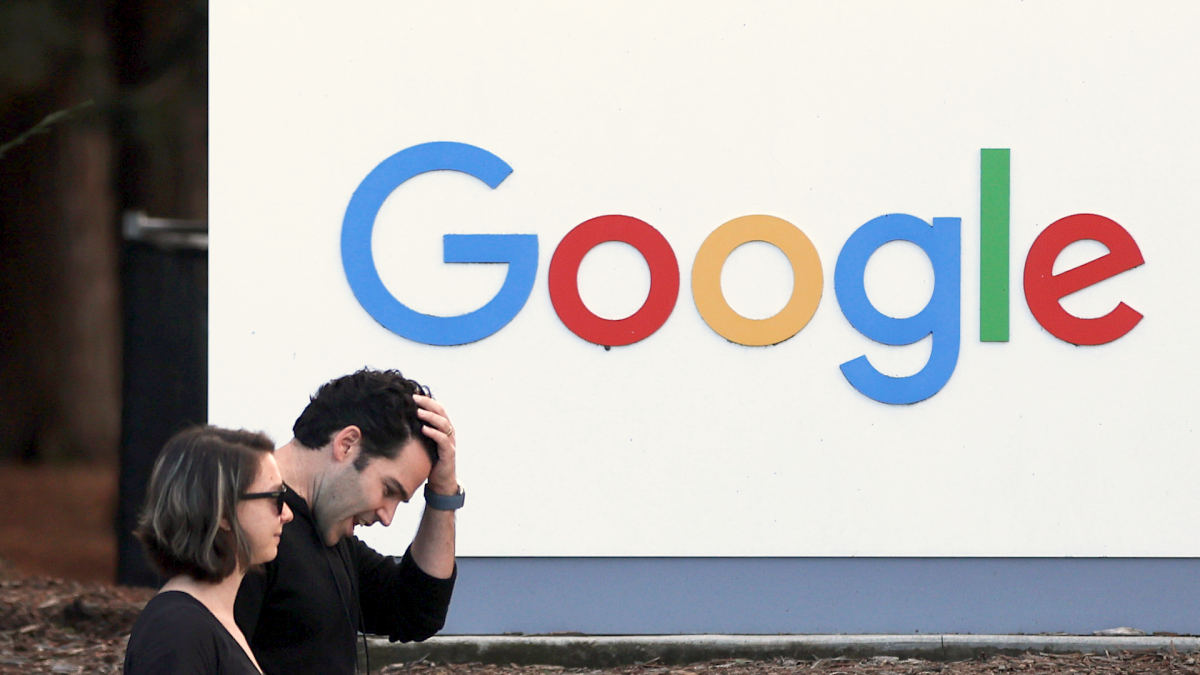Google might still have to sell its Chrome browser.
Last week the Department of Justice revised its proposed remedies in its antitrust case against Alphabet, (GOOGL) the parent of Google.
Alphabet can keep its current investments in artificial intelligence startups like Open AI rival Anthropic, but it would need to notify antitrust enforcers before investing in any more AI companies, the agency proposed.
This is because barring Google from investments in AI could “cause unintended consequences in the evolving AI space,” the antitrust authorities said in a court filing.
However, the rest of the DoJ’s proposed remedy, including a requirement that Alphabet divest the Chrome web browser, is largely unchanged from its proposal made in November.
This could be the biggest antitrust case since Microsoft’s (MSFT) in the late 1990s, analysts say.
The Justice Department claimed that Google’s exclusive agreements with smartphone manufacturers like Apple (AAPL) — which made Chrome the default search engine on billions of devices — have stifled competition. This poses one of the greatest threats to Google’s dominance in search.
In 2022, Google reportedly paid Apple $20 billion to secure its position as the default search engine in Safari.
Related: Surprising iPhone problem sends Apple stock reeling
Google spokesman Peter Schottenfels said in a statement that the department’s “sweeping proposals continue to go miles beyond the Court’s decision, and would harm America’s consumers, economy and national security.”
The judge’s final decision is expected in early August. For Alphabet, the outcome of this case could have far-reaching consequences as it may be forced to change its business model.
 Alphabet closed at $167.81 on Mar. 10 and is down 12% year-to-date.
Alphabet closed at $167.81 on Mar. 10 and is down 12% year-to-date.
Getty Images
Alphabet tumbled after earnings
Alphabet’s stock has been declining since early February, shedding more than 10%. The decline was sparked by the Mountain View, Calif., search, advertising and cloud-services company’s fourth-quarter-earnings report.
Related: Billionaire Stanley Druckenmiller exits 2 tech giants
Alphabet reported earnings per share of $2.15, above Wall Street analysts’ consensus estimate of $2.13. Revenue of $96.47 billion missed the $96.56 billion consensus call.
The company’s revenue growth, along with growth in its search business, YouTube ads, and services unit, all slowed from the previous year’s levels.
Alphabet plans to ramp up capital expenditures to $75 billion in 2025, with much of the increase earmarked for AI infrastructure. This is higher than Wall Street’s estimate of $58.84 billion, according to FactSet data pulled by CNBC.
Meanwhile, the stock, one of the so-called Magnificent 7 Big-Tech stocks, has been dragged into the broader market selloff prompted by President Donald Trump’s tariff and other policies.
Analyst: DoJ changes provide no break to investors
In August 2024 Judge Amit P. Mehta of U.S. District Court in Washington ruled that Google was a monopoly in online search markets.
Mehta held that Google dominated two online search markets and its default search engine agreements with major smartphone makers acted as exclusionary under antitrust laws.
“Google is a monopolist, and it has acted as one to maintain its monopoly,” Mehta said.
Following the DoJ’s latest remedies, JPMorgan says the revised filing does not bring investors relief.
The DoJ’s new plan is “only modestly different from the Initial Proposed Final Judgment filed on Nov. 20, 2024, and therefore it does not provide the relief to Google that some investors had hoped,” JP Morgan analyst Doug Anmuth said.
More Tech Stocks:
- Nvidia-backed startup could be hottest tech IPO of the year
- Sorry Elon, most Americans are uneasy with this Tesla technology
- Cathie Wood unveils 5 crucial technology trends
Anmuth said the judge’s final decision is likely to be “more balanced” than what the agency and Alphabet/Google have proposed. The judge’s decision could give “greater consideration” to the potential impact on consumers, the analyst argued.
He also noted that if the Google-Apple deal ended, Apple might turn to Microsoft or OpenAI, or even might develop its own search engine. Microsoft produces the Bing search engine.
JPMorgan has an overweight rating on Alphabet shares with a $220 price target.
Alphabet shares closed at $167.81 on March 10 and is down 12% year-to-date.
Related: Veteran fund manager unveils eye-popping S&P 500 forecast
